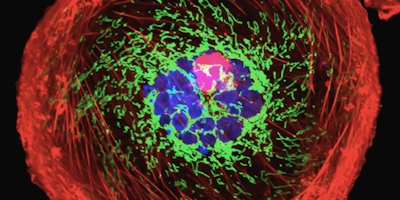Details of nine ongoing 2024 clinical trials on weight loss, managing obesity and its complications are listed in this page. These studies, conducted worldwide, offer valuable insights into various interventions and their impact on weight reduction. Below, we summarize each trial, highlighting key details in a concise and informative manner.
| Study Title | Primary Outcome Measures | Sponsor |
|---|---|---|
| Liraglutide (Saxenda®) in Adolescents With Obesity After Sleeve Gastrectomy | – Change in BMI (kg/m², baseline to 16 weeks) | Eunice Kennedy Shriver National Institute of Child Health and Human Development (NICHD) |
| Semaglutide 2.4 mg in Patients With Poor Weight-loss | – Weight loss – Percentage of total weight loss (68 weeks) | University College, London |
| Effectiveness of Gradual Versus Rapid Weight Loss | – Change in body weight (baseline to 12 months) – Percent total body weight loss (%TBWL, 12 months) | The Hospital of Vestfold |
| Trial to Examine the Effect of Natural Anti-Obesity Agent (Phaseolus Vulgaris) Among Women of Lahore | – Body weight change (3 months) | Hafiza Aisha Sadiqa |
| A Trial Evaluating the Effectiveness of Contrave in Patients Who Have Weight Recidivism Following Bariatric Surgery | – Change in absolute weight (Kg, baseline to 12 months) – Proportion of participants achieving 5 percent total weight loss (baseline to 12 months) | St. Joseph’s Healthcare Hamilton |
| Impact of Time-Restricted Eating on Metabolic Homeostasis, Inflammation and Oxidative Stress in Metabolic Syndrome | – Change in body weight (baseline to 14 weeks) – Change in fasting glucose concentration (baseline to 14 weeks) | Nicolaus Copernicus University |
| A Randomised Controlled Trial of a Weight Loss Maintenance Program for Adults With Obesity: The WLM3P Study | – Change in weight (18 months) | Universidade do Porto |
| Pragmatic Obstructive Sleep Apnea Weight Loss Trial Assessing Effectiveness and Reach | – Sleep-related quality of life (FOSQ score, baseline to 12 months) – Weight change (baseline to 9-15 months) | VA Office of Research and Development |
| Laparoscopic Roux-en-Y Gastric Bypass vs. Laparoscopic One Anastomosis Gastric Bypass | – Hospital cost and expenses (up to 3 months) – Length of operation (minutes, 1 day) | Puerta de Hierro University Hospital |
1. Liraglutide (Saxenda®) in Adolescents With Obesity After Sleeve Gastrectomy
- Study Title: Liraglutide (Saxenda®) in Adolescents With Obesity After Sleeve Gastrectomy
- Brief Summary: Metabolic Bariatric Surgery, specifically vertical sleeve gastrectomy, stands as the most effective treatment for severe obesity. However, some adolescents continue to struggle with obesity even a year after the surgery. This trial investigates whether Liraglutide can provide additional weight loss benefits for these individuals.
- Eligibility Criteria:
- Healthy adolescents aged 12-20.99 years
- 1-10 years post vertical sleeve gastrectomy
- BMI of 30 kg/m² or ≥95th percentile for age and sex
- Study Design:
- Participants will undergo screening, including medical history, physical exams, mood questionnaires, and blood/urine tests.
- Nutrition counseling and diet logs will be maintained.
- An oral glucose tolerance test will be conducted.
- Participants will take Liraglutide daily for 16 weeks (self-administered injections).
- Body scans will measure muscle and fat composition.
- A buffet meal assessment will evaluate appetite and mood.
- Participation spans 7 months with 7 study visits.
- Primary Outcome Measure:
- Change in BMI (kg/m²) from baseline to week 16
- Sponsor: Eunice Kennedy Shriver National Institute of Child Health and Human Development (NICHD)
2. Effectiveness of Gradual Versus Rapid Weight Loss
- Study Title: Effectiveness of Gradual Versus Rapid Weight Loss
- Brief Summary: This randomized controlled trial compares the 1-year effectiveness of an initial rapid weight loss (RWL) program with a gradual weight loss (GWL) program. Participants will be assessed for changes in body weight from baseline to 12 months, percent total body weight loss (%TBWL) at 12 months follow-up, and baseline to 1-year outcomes. The study aims to determine which approach yields better results.
- Primary Outcome Measures:
- Change in body weight from baseline to 12 months
- Percent total body weight loss (%TBWL) at 12 months follow-up
- Baseline to 1-year outcomes
- Sponsor: The Hospital of Vestfold
3. Semaglutide 2.4 mg in Patients With Poor Weight-loss
- Study Title: Semaglutide 2.4 mg in Patients With Poor Weight-loss
- Brief Summary: This double-blinded, randomized, placebo-controlled trial investigates semaglutide 3.0 mg/ml in patients with poor weight loss following bariatric surgery. The primary aim is to determine whether 68 weeks of subcutaneous semaglutide 3.0 mg/ml leads to greater percentage weight loss (%WL), reduced adiposity, improved metabolic and inflammatory indices, and enhanced health-related quality of life (HRQoL) compared to placebo in patients who underwent gastric bypass or sleeve gastrectomy.
- Interventions: DRUG: Semaglutide 3 mg | DRUG: Placebo
- Primary Outcome Measures:
- Weight loss
- Percentage of total weight loss
- 68 weeks outcomes
- Sponsor: University College, London
4. Impact of Time-Restricted Eating on Metabolic Homeostasis
- Study Title: Impact of Time-Restricted Eating on Metabolic Homeostasis, Inflammation, and Oxidative Stress in Metabolic Syndrome
- Brief Summary: This trial investigates the health impact of time-restricted eating (TRE) in patients with metabolic syndrome. Participants will limit their eating window to 10 hours per day during a 12-week monitored intervention, followed by a 12-week self-directed phase. Key assessments include glucose homeostasis, metabolic biomarkers, body composition, blood pressure, heart rate, sleep, and overall well-being.
- Intervention: BEHAVIORAL: Time-Restricted Eating
- Primary Outcome Measures:
- Change in body weight (measured in fasted state on a digital scale) at baseline and after 14 weeks
- Change in fasting plasma glucose concentration (mg/dl) at baseline and after 14 weeks
- Sponsor: Nicolaus Copernicus University
5. Effectiveness of Contrave in Patients With Weight Recidivism Following Bariatric Surgery
- Study Title: Effectiveness of Contrave in Patients Who Have Weight Recidivism Following Bariatric Surgery
- Brief Summary: This trial investigates the effectiveness of Contrave (naltrexone HCl and bupropion HCl) extended-release tablets in patients who experience inadequate weight loss or significant weight regain after bariatric surgery. Contrave, when combined with usual care (including dietary and behavioral counseling), will be compared to placebo with usual care. The study aims to determine which approach yields better outcomes.
- Interventions: DRUG: Contrave 8Mg-90Mg Extended-Release Tablet | DRUG: Placebo
- Primary Outcome Measures:
- Change in absolute weight (Kg) from baseline to 12 months
- Proportion of participants achieving 5 percent total weight loss at 12 months
- Sponsor: St. Joseph’s Healthcare Hamilton
6. Laparoscopic Roux-en-Y Gastric Bypass vs. Laparoscopic One Anastomosis Gastric Bypass
- Study Title: Laparoscopic Roux-en-Y Gastric Bypass Versus Laparoscopic One Anastomosis Gastric Bypass
- Brief Summary: This study aims to compare two different bariatric surgical techniques: the laparoscopic Roux-en-Y gastric bypass and the single anastomosis laparoscopic gastric bypass. Participants will undergo preoperative assessments, hospital treatment during admission, postoperative care, and follow-up. No novel methods will be introduced; patients will be randomly assigned to either technique.
- Interventions: PROCEDURE: Minigastric bypass | PROCEDURE: Gastric bypass
- Primary Outcome Measures:
- Hospital Cost in euros
- Total hospital expenses during admission for surgery (up to 3 months)
- Length of operation in minutes (duration of the surgical procedure, 1 day)
- Sponsor: Puerta de Hierro University Hospital (Spain)
7. Pragmatic Obstructive Sleep Apnea Weight Loss Trial Assessing Effectiveness and Reach
- Study Title: Pragmatic Obstructive Sleep Apnea Weight Loss Trial Assessing Effectiveness and Reach
- Brief Summary: Obesity-related conditions, such as obstructive sleep apnea (OSA), significantly impact quality of life and increase cardiovascular disease risk. This trial aims to address OSA by focusing on weight loss interventions. Although obesity is a reversible risk factor for OSA, patients often struggle with its management. The study evaluates practical approaches to improve outcomes.
- Interventions: Not specified
- Primary Outcome Measures: Not specified
- Sponsor: Not specified
8. Weight Loss Maintenance Program for Adults With Obesity: The WLM3P Study
- Study Title: A Randomised Controlled Trial of a Weight Loss Maintenance Program for Adults With Obesity: The WLM3P Study
- Brief Summary: This randomized controlled trial aims to evaluate a weight loss maintenance program for adults with obesity. The study focuses on sustaining weight loss achieved through previous interventions. Participants will undergo assessments related to weight, lifestyle, and overall health.
- Interventions: Not specified
- Primary Outcome Measures: Not specified
- Sponsor: Not specified
9. Trial to Examine the Effect of Natural Anti-Obesity Agent (Phaseolus Vulgaris) Among Women of Lahore
- Study Title: Trial to Examine the Effect of Natural Anti-Obesity Agent (Phaseolus Vulgaris) Among Women of Lahore
- Brief Summary: In this double-blind, randomized, placebo-controlled trial, researchers explore the impact of Phaseolus Vulgaris supplementation on weight loss and body composition among overweight women in Lahore, Pakistan. The primary outcome is weight loss, while secondary outcomes include changes in waist circumference.
- Intervention: Not specified
- Primary Outcome Measures:
- Weight loss (Primary outcome)
- Changes in waist circumference (Secondary outcome)
- Sponsor: Not specified


